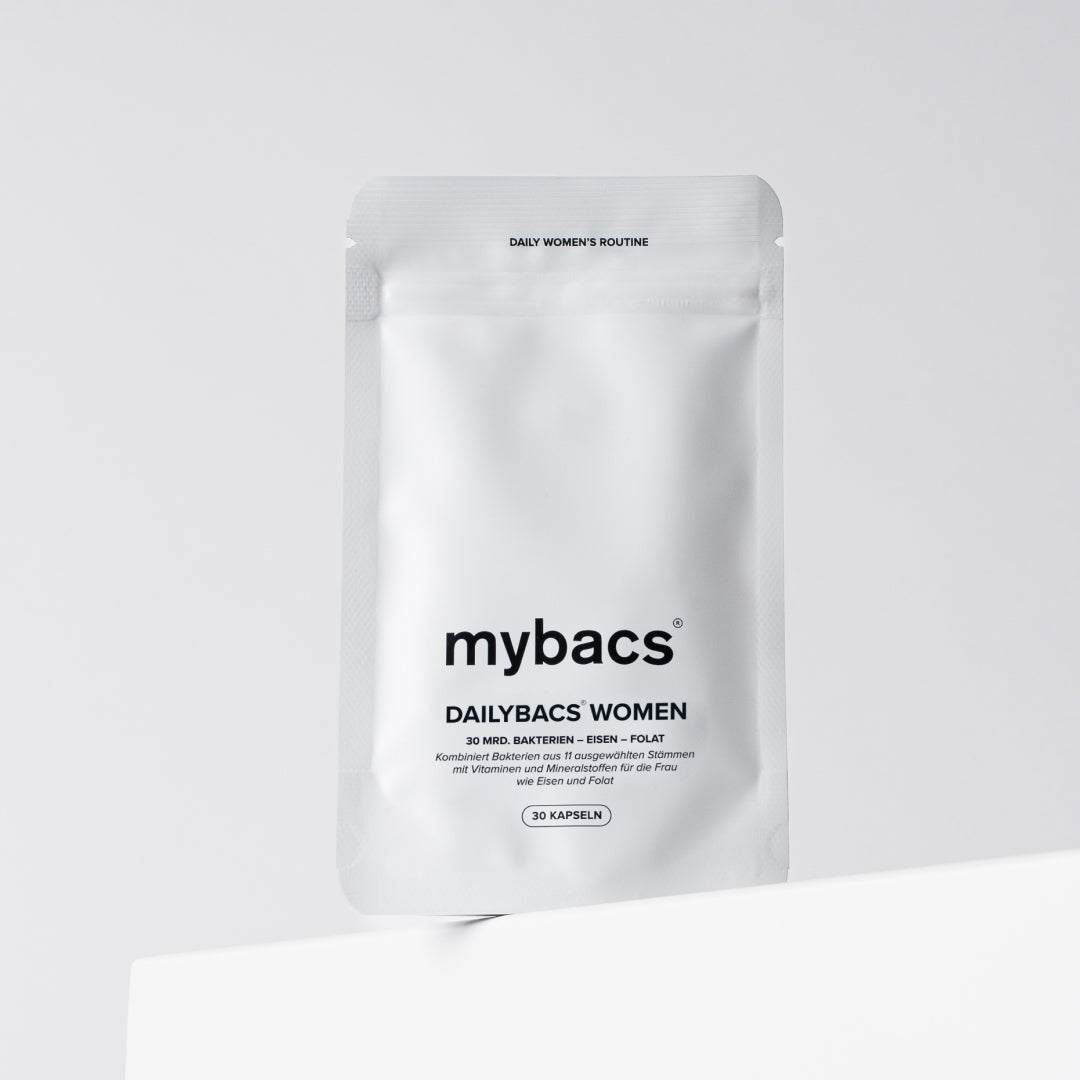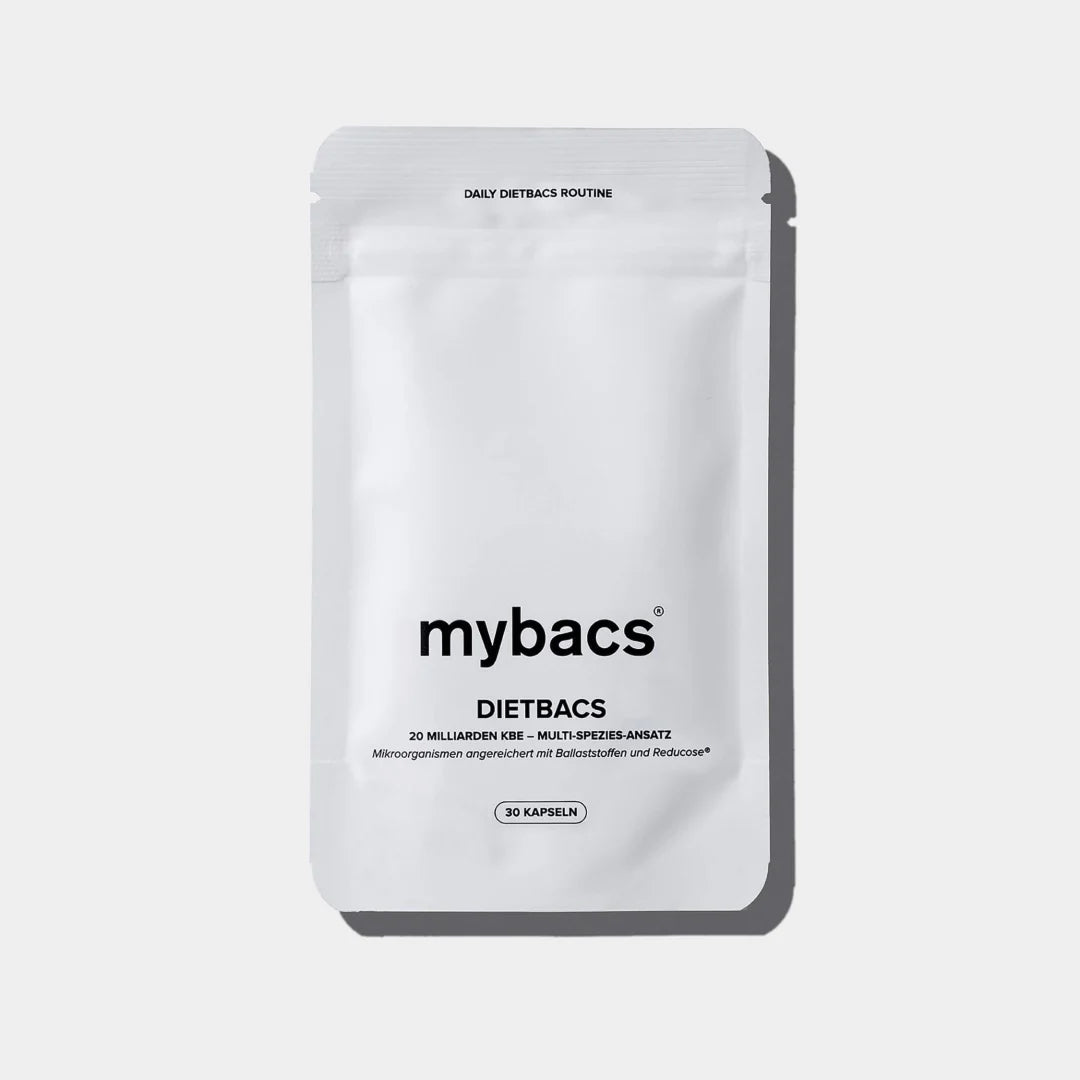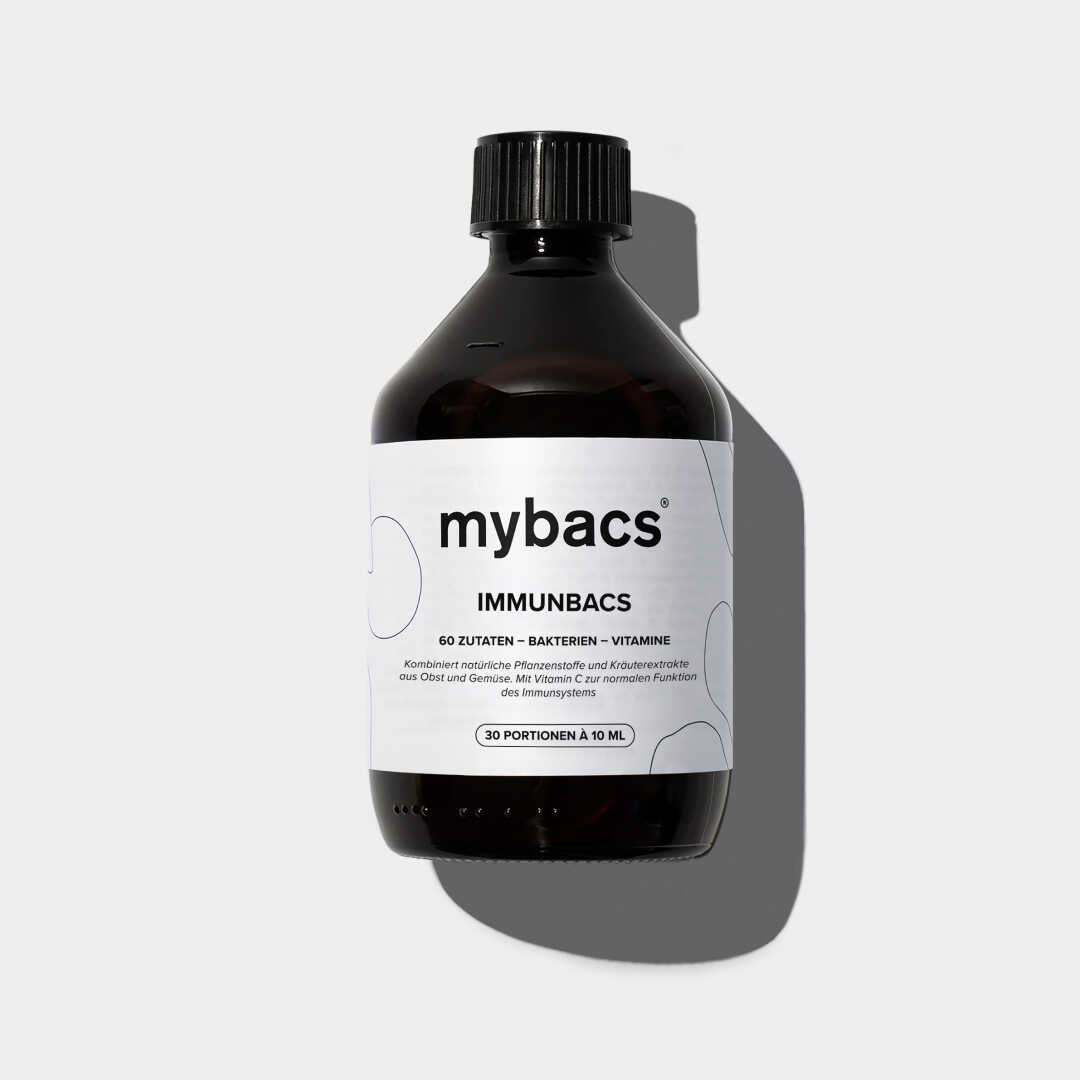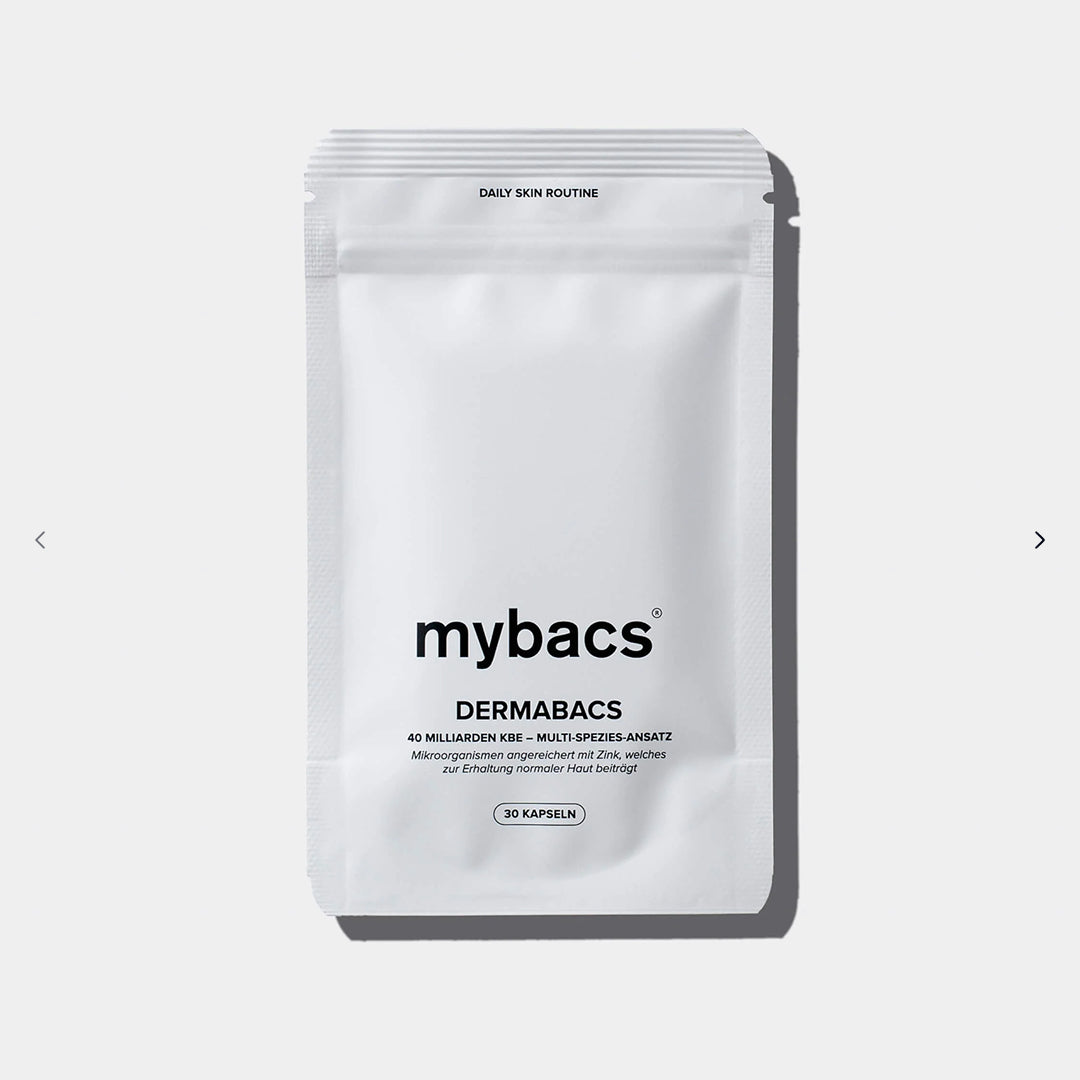1. Introduction
You've probably heard the term probiotics by now. Be it in the supermarket, in an advertisement, in the pharmacy, or maybe even on cosmetic products at the drugstore. Suddenly, probiotics are everywhere. But what are they? And where does all this hype come from? In this blog post, we want to give you a brief introduction to probiotics and then answer the most frequently asked questions about them!
Let's start at the very beginning, with the name: It is derived from Latin, and "pro bios" translates as "for life," which also reflects their function. According to the WHO, the World Health Organization, probiotics are defined as living microorganisms that provide health benefits when consumed in sufficient quantities.
Four criteria must be met for something to be called a probiotic:
- A proven health-promoting effect for the consumer
- The production of lactic acid and other substances with bacteriostatic or bactericidal effects
- They must survive the passage through the stomach during the digestive process and be able to reproduce in the intestine
- Evidence of genetic stability must be provided to rule out pathogenic mutations
In fact, probiotics are not a new scientific invention, but have long been part of the human diet. Particularly well-known and widespread are the Lactic acid bacteriaThese are found in dairy products such as kefir and quark, as well as yogurt.
Common bacterial strains include bifidobacteria and lactobacilli. The good news for those who don't eat dairy products: Lactic acid bacteria are also found in other foods such as pomegranate, sauerkraut, kombucha, and kimchi. Supplements such as Dailybacs from mybacs also provide particularly high doses. Each capsule contains a whopping 60 billion CFU, or colony-forming units.
2. Why do I actually need probiotics?
The question is both simple and complex, because by taking probiotics you can always do something good for your body! There are several different areas in which probiotics have been proven to have a positive effect. Through various mechanisms, such as the release of metabolic products into the body's bloodstream, the microorganisms in our intestines have an effect on digestion, the immune system, the psyche, the metabolism, the Skin condition and much more.
3. In which cases are probiotics taken?
Probiotics have different applications and are helpful for almost everyone. Humans are exposed to various environmental influences every day, such as the excessive use of Antibiotics, smoking, alcohol, sugar, lack of sleep, stress or an unbalanced diet. All of these can disrupt the microbiome's balance. The microbiome can be influenced by carefully selected probiotic bacterial strains, affecting the entire body and mind.
Probiotics can also be used to rebuild a weakened intestinal flora. This is often caused by low bacterial diversity in the gut. If this occurs, it can lead to bloating, diarrhea, or other digestive problems.Causes are often antibiotic treatment, chronic inflammatory bowel diseases or the widespread Irritable bowel syndrome.
A weakened intestinal flora often occurs when the body was previously infected with bad bacteria and these had to be fought. Unfortunately, this treatment also kills off the good bacteria, the lack of which can then disrupt the intestinal flora. This is also referred to as dysbacteriosis. Studies have shown that it can take up to six months for the intestinal flora to recover after taking antibiotics. Therefore, it is important to take a differentiated approach to taking antibiotics. It is advisable to speak to a doctor about taking them and, if necessary, look for alternatives. If antibiotics are unavoidable, it is a good idea to focus on restoring your own intestinal flora and find out how to bring it back into balance. Taking probiotics can help here, as intestinal bacteria are ingested, which then establish themselves in the intestinal mucosa, multiply, and can restore the intestinal flora to balance.
Chronic inflammatory bowel disease (IBD) can also be a reason why taking probiotics may be recommended. IBD is classified according to the intensity of the inflammation and treated accordingly. Acute IBD attacks are usually treated with medications designed to inhibit inflammation in the short term. The primary goal of treating IBD patients is to enable patients to live as symptom-free a life as possible.
Recent studies show that the administration of probiotics can also reduce the symptoms of these diseases. This refers to therapeutic procedures that attempt to influence the composition of the intestinal mucosa through microbiological corrections.
4. When are probiotics taken?
Regardless of which case applies to you, it is almost always recommended to take your probiotics in the morning on an empty stomach. This is because your digestive tract is still empty due to the lack of food during the night, and the production and secretion of gastric and bile acids is still low. This makes the passage through your gastrointestinal tract somewhat easier for the bacteria. However, since good resistance to gastric and bile acids is a quality characteristic of high-quality probiotic bacterial strains, and in the Dailybacs® only such bacterial strains are used, the Dailybacs® can also be taken at another time without any problem.
5. How much probiotic should I take?
Since every person is unique, the appropriate dosage of probiotics varies slightly from person to person and also depends on the specific bacterial strain. One disadvantage of consuming fermented foods is that the exact number and dosage of each bacterial strain cannot be determined. However, an "overdose" of fermented foods is very rare. Taking dietary supplements has the advantage of precisely controlling the dosage. It is particularly important that the dosage of each strain is chosen according to the dosage used in clinical studies to ensure the positive effect is replicable.
6. How do you store probiotics?
It always depends on the product in which the probiotics are contained.For example, if you consume your bacterial cultures in the form of a drink, you should be careful not to break the cold chain. Powdered probiotics that can be stored at room temperature are more practical. Dailybacs, for example, are stored as capsules in an opaque glass jar. This protects the bacteria from oxidation, light, and pressure when you pack them in your travel toiletry bag—so it's really easy!
7. What should I consider when buying and taking probiotics?
If you are pregnant, suffer from a specific illness, or have general concerns, always consult your doctor to discuss taking probiotics. Otherwise, probiotics are not prescription-only and can therefore be purchased at your own discretion. Generally, however, when purchasing, you should always make sure you buy high-quality bacterial strains, and also ensure that these are strains for which clinical studies have already been conducted and proven effective. Many white-label products use neither. Bacterial strains are divided into resident and transient Bacterial strains. Resident bacteria can gradually colonize your gut upon ingestion and will remain there for the longer term. Transient bacteria, however, are excreted after passing through the gastrointestinal tract. Both types of bacteria are very important for a stable microbiome. The mechanism of action of transient bacterial strains explains why long-term intake is recommended to achieve a lasting positive effect. The first positive effects are usually noticeable after just a few days. A positive change in digestion, and thus also in bowel movements, is often the first to occur. After weeks or months, you may already feel your gut sending positive signals to your brain, increasing your energy and mood. Within six months, positive effects can also occur in your immune system, skin, and other bodily systems. 80% of the immune system takes place in the gut, and the microbiome plays a crucial role here. Microbial diversity is also beneficial for the cardiovascular system and metabolism. 8. How long should I take probiotics?
Once you feel inner strength and vitality, it will also make you shine on the outside, and if your gut is healthy, then you will feel good too!






